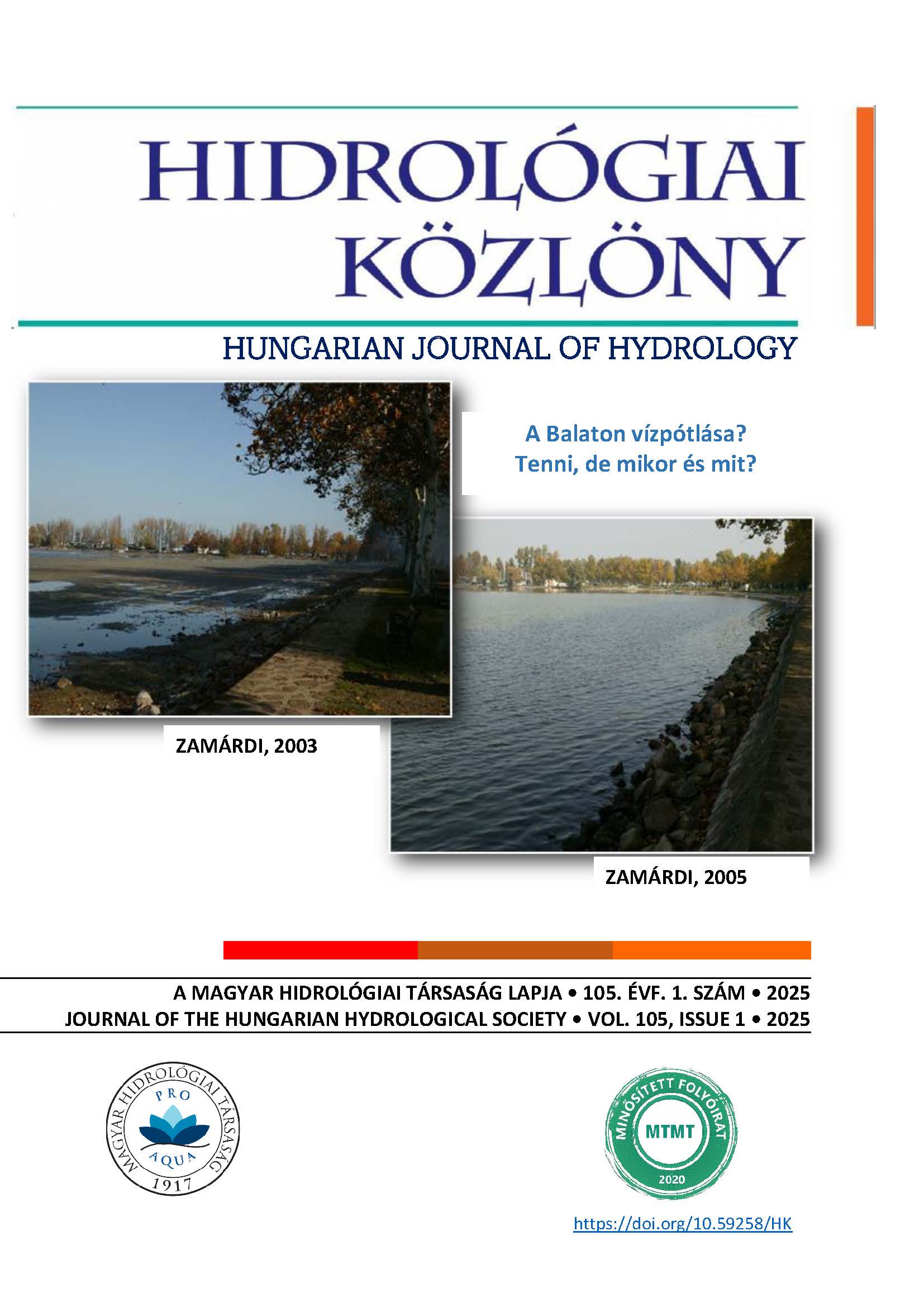The challenge of urban water management is to improve drinking water safety
Abstract
The topics of the Drinking Water Safety Conference, held on October 18, 2024, were: an overview of public health requirements, the operation of the drinking water supply chain based on risk assessment and applied risk management, current issues related to water treatment technologies, and the improvement of the safety of the quality of supplied drinking water based on hazard prevention. In connection with the presentation of the conference presentations, we will briefly describe the domestic foundation and objectives of the drinking water safety plan-program.
References
/2023 (I. 12.) Kormányrendelet az ivóvíz minőségi követelményeiről és az ellenőrzés rendjéről
Víz Keretirányelv - Az Európai Parlament és a Tanács 2000/60/EK [2000. október 23.] irányelve a vízpolitika terén a közösségi fellépés kereteinek meghatározásáról
Stanford, B.D., Pisarenko, A.N., Snyder, S.A., Gordon, G. (2011). Perchlorate, bromate, and chlorate in hypochlorite solutions: Guidelines for utilities Journal – American Water Works Association, 103(6), pp. 71–83. https://doi.org/10.1002/j.1551-8833.2011.tb11474.x
Coulombe, L., Legay, C., Sérodes, J., és Rodriguez, M. J. (2019). Management of hypochlorite solutions used for water treatment in small drinking water systems. Water Practice and & Technology, 14(2). pp. 380-390. https://doi.org/10.2166/wpt.2019.025
Copyright (c) 2025 Mátyás Borsányi , Dóra Laky

This work is licensed under a Creative Commons Attribution-NonCommercial-ShareAlike 4.0 International License.




